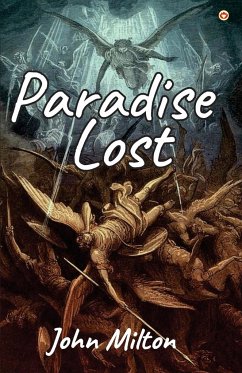
We
Versandkostenfrei!
Versandfertig in 1-2 Wochen
17,99 €
inkl. MwSt.

PAYBACK Punkte
9 °P sammeln!
We is a dystopian novel written by Russian writer Yevgeny Zamyatin. Originally drafted in Russian, the book could be published only abroad. It was translated into English in 1924. Even as the book won a wide readership overseas, the author?s satiric depiction led to his banishment under Joseph Stalin?s regime in the then USSR. The book?s depiction of life under a totalitarian state influenced the other novels of the 20th century. Like Aldous Huxley?s Brave New World and George Orwell?s Nineteen Eighty-four, We describes a future socialist society that has turned out to be not perfect but inhum...
We is a dystopian novel written by Russian writer Yevgeny Zamyatin. Originally drafted in Russian, the book could be published only abroad. It was translated into English in 1924. Even as the book won a wide readership overseas, the author?s satiric depiction led to his banishment under Joseph Stalin?s regime in the then USSR. The book?s depiction of life under a totalitarian state influenced the other novels of the 20th century. Like Aldous Huxley?s Brave New World and George Orwell?s Nineteen Eighty-four, We describes a future socialist society that has turned out to be not perfect but inhuman. Orwell claimed that Brave New World must be partly derived from We, but Huxley denied this. The novel is set in the future. D-503, a spacecraft engineer, lives in the One State which assists mass surveillance. Here life is scientifically managed. There is no way of referring to people except by their given numbers. The society is run strictly by reason as the primary justification for the construct of the society. By way of formulae and equations outlined by the One State, the individual?s behaviour is based on logic.














